ENVIRONMENTAL ASSESSMENTS

|
-
ASTM Transaction Screens
-
Phase I, II & III Environmental Site Assessments
-
Contaminant Delineation Studies
-
Monitor Well, Geoprobe and Bedrock Well Drilling
-
|
| |
|
HAZARDOUS MATERIALS REMEDIATION
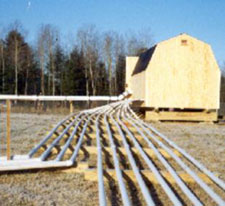
|
-
Remedial Investigations & Subsurface Design
-
Process and Controls Engineering
-
Licensed Site Professional (LSP-MA) Services
-
Licensed Environmental Professional (LEP-CT) Services
-
Risk Assessments
-
Implementation of InSitu & Excavation-based Remedial Alternatives
-
Prepare and Submit Discharge Permit Applications
|
| |
|
BROWNFIELDS REDEVELOPMENT
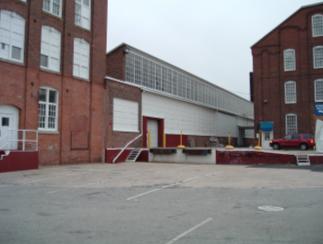
|
-
Strategic Planning for Remediation & Redevelopment
-
Hazardous Building Materials Evaluations (PCBs, Asbestos, Lead Paint)
-
Regulatory Negotiation, Settlement Agreements, ELURs & Risk-Based Remedies
|
| |
|
UNDERGROUND STORAGE TANK MANAGEMENT
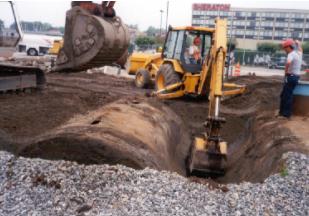
|
|
| |
|
GROUNDWATER STUDIES
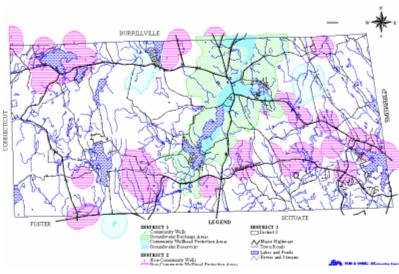
|
-
Groundwater Quality Monitoring Programs
-
Groundwater Supply Studies
-
Groundwater Protection Programs
-
Aquifer Tests
-
Geophysical Evaluations
-
Landfill Closure and Monitoring Studies
|
| |
|
REGULATORY COMPLIANCE
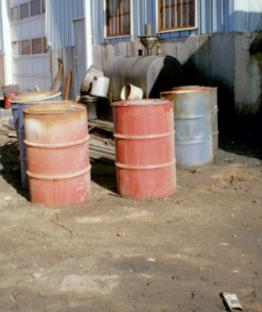
|
|
| |
|
Environmental Assessment
We conduct pre-acquisition environmental site assessments (Transaction Screens & Phase I ESAs) for individuals or companies considering buying properties where contaminants may have been released. Potential buyers of commercial property must adequately investigate a property’s potential to contain environmental contamination in order to take advantage of EPA’s new “all appropriate inquiry” rule and limit their liability under federal law.
At Sites where contamination of soil or groundwater is discovered, LSE uses low cost field screening tools and methodologies to rapidly identify contaminant source (release) areas and delineate the extent of contaminant migration. One such project recently completed by LSE utilized these “interactive” field screening methods (X-ray fluorescence analyzer, photoionization detector and PetroFlag) to cost-effectively delineate the depth and extent of lead, volatile organic compounds (VOC) and petroleum hydrocarbons across a four-acre automobile salvage yard. LSE maintains close working relationships with a wide variety of subcontractors for such services as drilling, analytical laboratory, excavation and hazardous waste disposal which allows LSE to be exceptionally responsive on projects with tight deadlines.
Back to top |
| |
Remediation and Brownfields Redevelopment
Sites containing soil or groundwater contamination that is jurisdictional to state environmental agencies must be cleaned up voluntarily or by order. Frequently, real or perceived contamination at abandoned industrial or commercial sites and the associated liability for cleanup costs is a significant obstacle to their redevelopment. The staff at LSE specialize in the investigation and cleanup of these “Brownfields” sites and provided prospective purchasers with viable remedial alternatives that address site-specific risks while minimizing restrictions on future activities thereby making the project an economically feasible venture.
LSE has implemented numerous remediation projects where simple soil excavation and off-site recycling or disposal proved to be the most expedient and economical remedy. Alternatively, where Site conditions favor an In-Situ remedial approach, LSE can perform pilot tests, design full-scale systems, manage/implement remediation system construction and perform operation and maintenance tasks. The staff at LSE has designed and installed soil vapor extraction systems, multiphase extraction systems, groundwater pumping and treatment systems, air sparging systems and monitored natural attenuation programs.
Successful redevelopment of contaminated properties requires not only a highly experienced remedial design team but also a thorough understanding of the state regulations governing cleanup projects. For Massachusetts sites subject to requirements of the Massachusetts Contingency Plan (MCP), LSE staff includes Licensed Site Professionals (LSP). In Massachusetts, an LSP must certify that response actions at waste disposal sites have resulted in “no significant risk” and file a response action outcome statement (RAO) with the DEP confirming that all cleanup work was completed in accordance with the MPC.
For projects jurisdictional to Connecticut’s Remediation Standard Regulations (RSRs), LSE’s Licensed Environmental Professional (LEP) will direct remedial investigations and verify when compliance with the RSRs is achieved.
Although no privatized environmental professional program yet exists in Rhode Island, the staff at LSE have worked with Rhode Island’s Remediation Regulations since they were promulgated in 1994 and with RIDEM personnel for more than 15 years. LSE staff have also previously served on RIDEM’s Waste Site Remediation Permit Streamlining Task Force and provided technical expertise to RIDEM under a technical assistance contract.
Back to top |
| |
Underground Storage Tank Management
Leaking underground storage tanks (UST) used to store petroleum fuels are a leading cause of groundwater contamination. By recent RIDEM estimates, up to a dozen leaks are reported each month for UST systems across the state. LSE has been involved with UST and pipe systems for decades and can assist clients with evaluating petroleum storage needs, UST and line tightness testing, replacement USTs and above ground storage tank (AST) systems, leak and spill response, UST closure investigations and remediation.
Back to top |
| |
Groundwater Studies
The staff at Lake Shore Environmental include hydrogeologists and other environmental scientists with experience in conducting groundwater quality and aquifer test studies. LSE is currently conducting groundwater monitoring programs for municipal and institutional landfills in Connecticut and has assisted with development of a groundwater protection ordinance for a Rhode Island municipality.
Back to top |
| |
Regulatory Compliance
Companies involved with storage of large volumes of petroleum fuels or generation of hazardous waste are subjected to an array of state and federal regulations. LSE can assist environmental managers with regulatory compliance reviews and preparation of spill prevention plans and hazardous waste contingency plans. LSE has also assisted several clients with investigating and closing floor drain systems and associated drywells in accordance with underground injection control regulations.
Back to top
|


